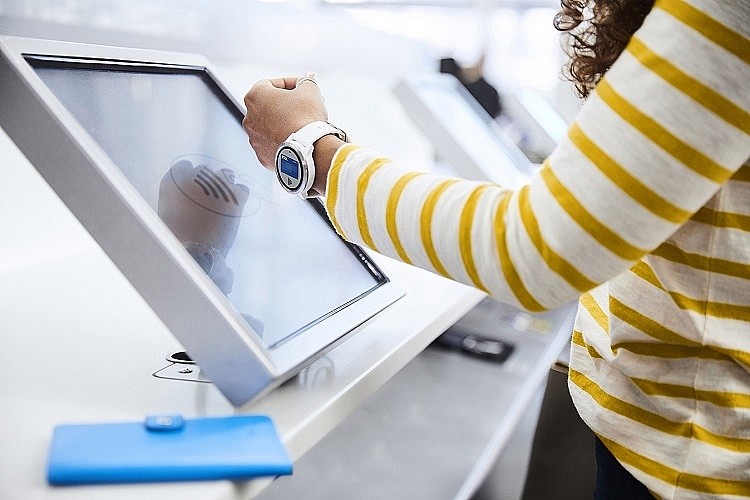Visa helps prevent nearly $25 billion in fraud using AI
 |
| Visa was the first payment network to apply neural network-based AI in 1993 to analyse the riskiness of transactions in real time |
The tool (VAA) monitors and evaluates transaction authorisations on the Visa global payment network, VisaNet, in real time to help financial institutions promptly identify and respond to emerging fraud patterns and trends.
Visa processed more than 127 billion transactions between merchants and financial institutions on VisaNet last year, and employed AI to analyse 100 per cent of the transactions – each in about one millisecond – so financial institutions can approve legitimate purchases while quickly identifying and preventing fraudulent transactions.
“One of the toughest challenges in payments is separating good transactions made by account holders from bad ones attempted by fraudsters without adding friction to the process,” said Melissa McSherry, senior vice president and global head of Data, Risk and Identity Products and Solutions, Visa.
“Visa was the first payment network to apply neural network-based AI in 1993 to analyse the riskiness of transactions in real time, and the impact on fraud was immediate. By striking the right balance between human expertise and technology innovation, we continue to evolve our capabilities as new AI breakthroughs expand the realm of what’s possible,” she noted.
For financial institutions, friction in the payment process can lead to the abandonment of a payment card. A study by Javelin Strategy and Research revealed more than half of cardholders affected by false declines (51 per cent) used a secondary payment card to complete the purchase at the same merchant, which can push a competitor’s card to the top of a wallet.
However, making the payment process easier should not reduce security and fraud prevention capabilities. As a survey by the National Retail Federation and Forrester discovered, the top payment-related challenge faced by retailers is fraud, cited by 55 per cent of those surveyed.
| More than 8,000 financial institutions in 129 countries use Visa Advanced Authorisation. |
Visa Advanced Authorisation is a layer of fraud prevention that can help drive down risk and fraud for financial institutions and retailers, and help reduce friction due to false declines for payment account holders.
More than 8,000 financial institutions in 129 countries use Visa Advanced Authorisation.
Preventing fraud near the speed of light
Visa pioneered using neural networks modeled after the human brain to power its AI platform to identify possible fraud. This delivers faster and deeper insights through previously unknown correlations.
Delivered through Visa Advanced Authorisation (VAA), retailers and financial institutions benefit from Machine Learning models used for real-time examination of each transaction for indicators of fraud – looking at activities, patterns, and more than 500 risk attributes – all in about one millisecond.
Other benefits include risk scoring, which Visa shares with the accountholder’s financial institution, where the decision is made to either approve or decline the transaction, or flag the transactions for follow up with the account-holder; the ability to identify good transactions even when made by new or infrequent shoppers; and real-time authorisation using integrated, global predictive analytics to identify and prevent fraud.
Visa has kept global fraud rates at historic lows – less than 0.1 per cent – through a multi-layered approach of investing in human intelligence and technology like AI; empowering consumers and clients with tools, resources and control to manage risk; and setting governance processes to help businesses and regulators stay nimble.
The company champions security every day to protect the payment ecosystem and offers a portfolio of risk products and services that can help consumers, merchants, and financial institutions prevent fraud. This includes Visa Risk Manager (VRM), Visa Consumer Authentication Services (VCAS), and CyberSource Decision Manager (DM), among others.
“Consumers identified Visa as the most trusted company to provide financial services or payments among all payment networks and we believe it is due to Visa’s unrelenting focus on eliminating fraud and protecting the payment ecosystem,” said McSherry.
What the stars mean:
★ Poor ★ ★ Promising ★★★ Good ★★★★ Very good ★★★★★ Exceptional
Related Contents
Latest News
More News
- VIB named Best Customer Satisfaction Bank in Vietnam 2025 (December 26, 2025 | 16:40)
- Visa and Techcombank win AmCham’s 2025 ESG Tech Innovation Award for Eco Card (December 09, 2025 | 12:16)
- Visa brings tap-to-ride payments to Hanoi Metro Line 2A (December 05, 2025 | 17:35)
- Cross-border QR payments launched for Chinese tourists (December 03, 2025 | 19:12)
- VIB honoured by JP Morgan with 2025 US Dollar Clearing Elite Quality Recognition Award (December 02, 2025 | 17:04)
- Home Credit Vietnam brings financial literacy closer to women and students (November 20, 2025 | 11:25)
- MB partners with Visa, KOTRA to launch new MB Visa Hi BIZ card (November 20, 2025 | 11:24)
- VPBank upgrades core banking with Temenos and Systems Limited (November 14, 2025 | 17:54)
- CPO Home Credit shares how to build an AI-driven but human-centric workplace (October 30, 2025 | 09:56)
- VIB hits $267.4 million in pre-tax profit over first nine months (October 29, 2025 | 12:12)

 Tag:
Tag:

























 Mobile Version
Mobile Version